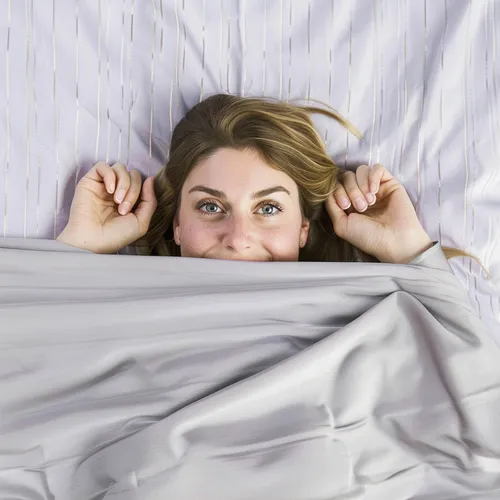We know that getting enough good quality sleep is pivotal to living our best life. And, we know that adults require between 7 and 9 hours of sleep each day, with children and teenagers requiring even more. So, what happens to our body when we don’t get the sleep we require? These lost sleep hours are known as sleep debt, and this debt accumulates, growing each and every time we reduce our nightly sleep. No problem, we think, we’ll make up for our lost sleep on the weekend! Turns out it’s not that simple. New research shows that sleeping in on weekends cannot reverse the damage caused by a lack of sleep, and researchers are warning that our weekend lie-ins should not be used to catch up on sleep missed during the week.
What Is Sleep Debt?
Sleep debt can be described as the difference between the number of hours your body requires to function effectively and the number of hours sleep you are actually getting. According to the CDC (Centre for Disease Control and Prevention), one third of American adults are not meeting the recommended sleep threshold, which according to the CDC is a minimum of 7-hours per night.
We need to understand that it’s not only our general health that suffers from accumulating a sleep debt: there are other negative effects like impaired judgement, lack of concentration, irritability, and even long-term effects such as heart disease, high blood pressure, and obesity. It’s also important to understand that people who suffer from sleep debt typically don’t realize just how tired they are, simply because they don’t recall what being well-rested feels like.
Why Do so Many People Suffer from Sleep Deprivation?
Sleep deprivation can occur because of a sleep disorder, like sleep apnoea, but it typically occurs because of our extremely hectic lives. People are working longer hours and taking on more commitments, resulting in a stressful life. Researchers are pointing out that there is now a very strong link between insufficient sleep on a nightly basis and the development of certain metabolic conditions, like cardiovascular problems, diabetes, and obesity.
Study Report from the ‘Journal of Sleep Research’
Last year we saw a study featured in the Journal of Sleep Research suggesting that we could, in fact, repay our sleep debt by sleeping extra hours on the weekend, and that this could be a helpful practice in maintaining good health.
Study Report from ‘Current Biology’
However, the findings of a new study recently appeared in Current Biology, and this research contradicts the Journal of Sleep Research findings. The take-away from this new research clearly shows that sleeping in on the weekend in order to catch up on lost sleep cannot reverse damage caused by sleep loss during the week.
In order to prove their results, 36 healthy, young, adult participants were recruited by the researchers. These participants were then randomly divided into three groups, as follows –
- The first group of adults would sleep for 5-hours each and every night, including the weekend;
- The second group of adults would sleep for 5-hours each night during the week, then enjoy unrestricted sleep time at the weekend, followed by two more nights of 5-hours sleep;
- The third group of adults was the control group, and this group could enjoy 9-hours sleep every night on both weeknights and on the weekend.
‘Current Biology’ Study Results
The study results were interesting, in that all participants who had restricted sleep during the week started after-dinner snacking, which ultimately led to weight gain. The participants who were allowed to enjoy a weekend sleep-in consumed fewer calories with their after-dinner snacking than those participants who carried on with their restricted sleep program. However, participants who slept in on weekends then returned to restricted sleep hours during the week, continued experiencing impairment of their body clock. The after-dinner snacking habit continued and they continued putting on weight.
What the ‘Current Biology’ Researchers Found
The researchers noticed that, when it came to specific metabolic changes, the study participants with restricted sleep hours every night had reduced insulin sensitivity with a decrease of around 13%. Typically, a marker of good health is high insulin sensitivity, whereas low sensitivity can indicate diabetes. The researchers were not particularly surprised by the decrease in insulin sensitivity in the restricted sleep group; however, they were surprised that the results of study participants who used the weekend to catch up on missed sleep were not much better. Despite their enjoyable sleep-in on the weekend, these participants still had reduced insulin sensitivity. Then, during the week when they again experienced sleep loss, their insulin sensitivity, specifically in the liver and the muscles, reduced dramatically by between 9% and 27%.
In Conclusion
Other than tiredness, short-term negative effects of sleep debt might include memory problems, impaired driving, foggy brain, and reduced vision; while long-term negative effects might include insulin resistance, obesity, and heart disease.
Photo by Alexandra Gorn on Unsplash
Zoom Health’s Earplug Sample Packs
Finding the perfect earplugs can be a challenge. Everyone’s ears are unique, so what works well for one person might not suit another. That’s why Zoom Health’s earplug sample packs offer a brilliant solution for both men and women seeking the ideal fit and level of noise reduction.
For the guys, the Men’s Earplugs Sample Pack packs a punch with 13 pairs of top-quality foam earplugs from trusted brands like 3M, Moldex, and Mack’s. From the classic soft foams to the heavy-duty MAX earplugs boasting an impressive 33dB noise reduction rating, this pack covers all the bases. It even includes specialised options like the Mack’s Slim Fit for those with narrower ear canals. With such a diverse selection, you’re bound to find the foam earplug that feels like a dream.
But the goodies don’t stop there! The pack also includes a pair of Hush Plugz silicone earplugs and a set of Noise-X natural wax earplugs, offering alternatives for different preferences and situations. Whether you’re tackling snoring, catching some Z’s on a plane, or just seeking a peaceful escape, this pack has you covered.
And for the ladies? The Women’s Earplugs Sample Pack is a treasure trove of comfort and calm. Like its male counterpart, it features 13 pairs of foam earplugs, including fan-favourites like the 3M EARsoft and Moldex Contours in both regular and petite sizes. But it also includes the ultra-feminine Mack’s Dreamgirl earplugs, complete with their bold pink hue. Talk about making a statement while catching some shut-eye!
Alongside the foam selection, this pack also offers the Hush Plugz silicone and Noise-X wax earplugs, ensuring you can find the perfect match for your unique needs and ear shape.
The beauty of these sample packs lies in their versatility. Rather than guessing and potentially wasting money on earplugs that don’t quite fit the bill, you can try out a variety of options in the comfort of your own home. It’s like having a personal earplug concierge at your service!
So, whether you’re a frequent traveler, a light sleeper, or simply someone who appreciates the occasional respite from noise, consider investing in one of Zoom Health’s earplug sample packs. With their thoughtful curation and commitment to quality, you’re sure to find your perfect fit – and maybe even a new favourite pair of earplugs to take on all your future adventures.
Photo “Sheets” by Anthony Cunningham for Zoom Health Zoom Health is a leading UK supplier of Home Health Tests and Earplugs






